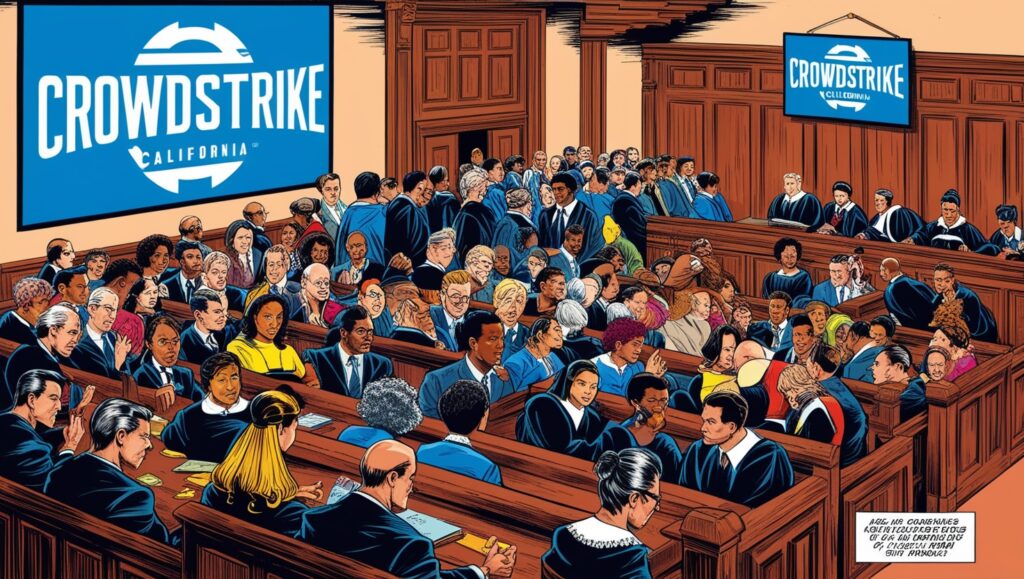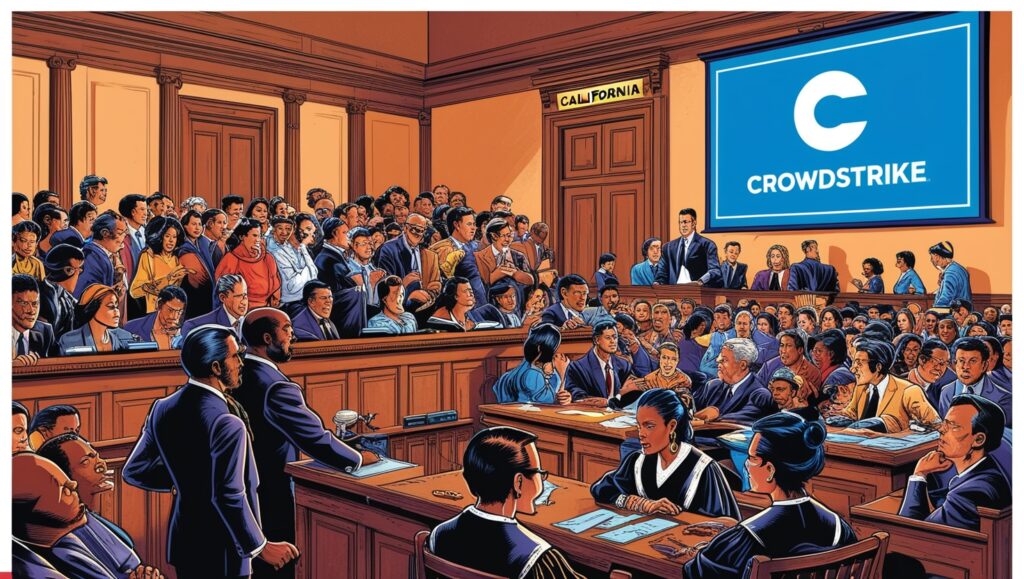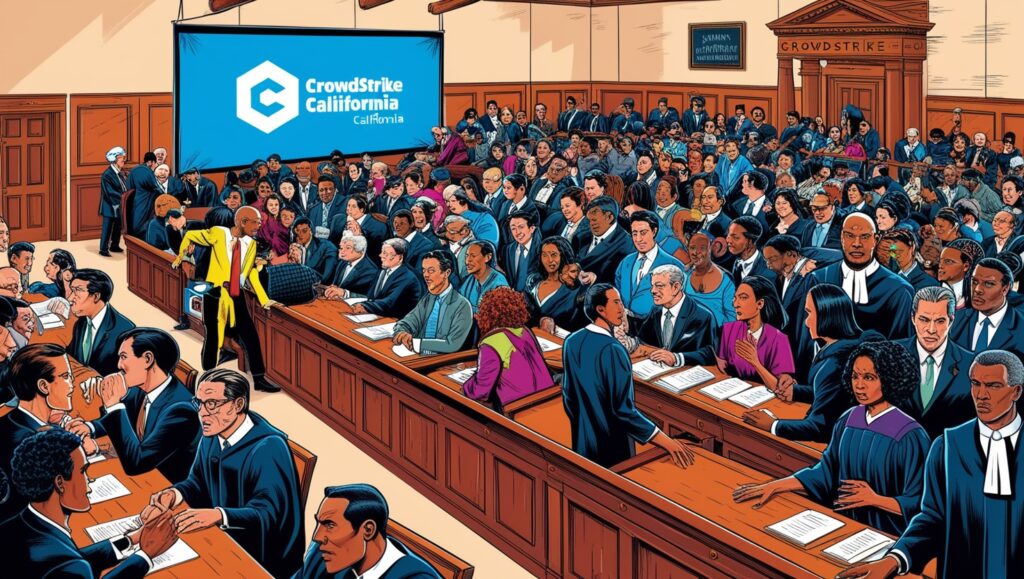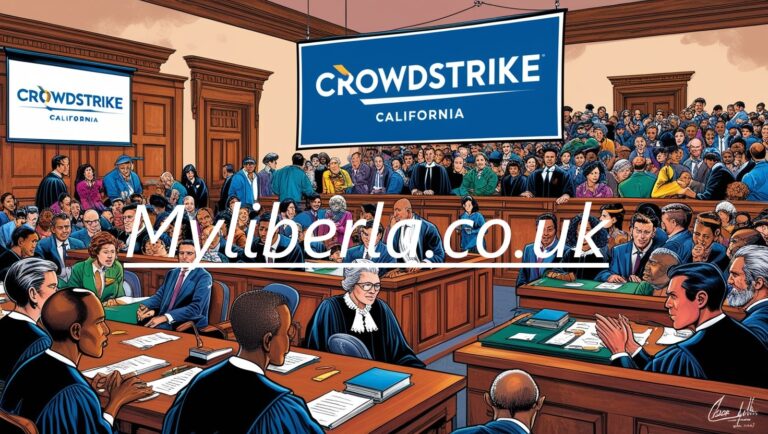In recent years, the intersection of technology and law has garnered increased attention, particularly in cases involving cybersecurity and corporate accountability. One notable case is the DWC CrowdStrike California court proceedings, which have sparked discussions on digital privacy, data protection, and corporate responsibility in the era of advanced technology. This article delves into the complexities surrounding the case, examining its implications for the tech industry and the legal landscape in California.
Understanding the Background of CrowdStrike
Founded in 2011, CrowdStrike is a cybersecurity technology company specializing in cloud-native endpoint protection. With its innovative approach to threat detection and response, the firm has positioned itself as a leader in the cybersecurity arena. Its platform uses artificial intelligence and machine learning to identify and mitigate potential threats, making it an invaluable resource for businesses seeking to protect their digital assets.
The company gained significant public attention in 2016 when it was involved in the investigation of the Democratic National Committee (DNC) hack. CrowdStrike’s findings pointed to Russian state-sponsored actors, and this involvement thrust the company into the spotlight, marking the beginning of its evolution into a prominent player in the cybersecurity space.
The Context of the DWC CrowdStrike Case
The DWC (Department of Workers’ Compensation) CrowdStrike case revolves around the intersection of cybersecurity and workers’ compensation claims. As more companies adopt digital tools and cloud-based systems, the question of how these technologies affect employee rights and responsibilities has become increasingly relevant.
In this case, the California court is faced with the challenge of addressing the legal ramifications of a significant data breach and its impact on workers’ compensation claims. The situation raises crucial questions about employer responsibilities, employee rights, and the adequacy of cybersecurity measures in protecting sensitive data.
Legal Framework Surrounding Cybersecurity and Workers’ Compensation
Understanding the dwc crowdstrike california court case necessitates a grasp of the legal framework governing cybersecurity and workers’ compensation in California. The California Workers’ Compensation Act establishes the rules and regulations surrounding workplace injuries and claims. However, with the rise of remote work and digital platforms, the interpretation of these laws is evolving.
Cybersecurity regulations, including the California Consumer Privacy Act (CCPA) and the California Privacy Rights Act (CPRA), also play a significant role. These laws aim to protect consumer data, requiring companies to implement robust security measures to safeguard personal information. As such, the case emphasizes the need for businesses to reconcile their technological advancements with compliance with existing legal frameworks.

Key Issues in the DWC CrowdStrike Case
Employee Rights and Employer Responsibilities
One of the primary issues at the heart of the dwc crowdstrike california court case is the balance between employee rights and employer responsibilities. As digital workplaces become more prevalent, employers must navigate the complexities of protecting employee data while ensuring that workers are aware of their rights in the event of a data breach.
The case raises important questions about what constitutes a workplace injury in a digital context. If an employee’s personal information is compromised due to inadequate cybersecurity measures, can they claim damages under workers’ compensation laws? This aspect of the case will likely set a precedent for future claims and employer liabilities in similar situations.
The Role of Technology in the Workplace
Another critical issue in this case is the role of technology in modern workplaces. As companies increasingly rely on digital tools, they must also grapple with the associated risks. The dwc crowdstrike california court case exemplifies the challenges businesses face in safeguarding their systems and protecting employee data.
Furthermore, this case highlights the need for ongoing employee training on cybersecurity awareness. Employers have a responsibility to educate their workforce about potential threats, such as phishing attacks and social engineering, which can compromise both corporate and personal data.
Data Breaches and Corporate Accountability
Data breaches have become a common occurrence in today’s digital landscape, and their repercussions extend beyond the immediate loss of information. Companies must contend with the potential for litigation, regulatory scrutiny, and damage to their reputation. The dwc crowdstrike california court case raises critical questions about corporate accountability in the face of such breaches.
In this context, the court’s ruling could establish a legal precedent that holds companies accountable for their cybersecurity measures and the protection of employee data. If the court finds CrowdStrike liable for failing to safeguard sensitive information, it could have far-reaching implications for other businesses in the industry.
The Court’s Proceedings and Developments
As the DWC CrowdStrike case unfolds in the California courts, several developments have captured public attention. The proceedings have highlighted the intricacies of legal arguments surrounding data protection and workers’ compensation claims.
Key Arguments from Both Sides
The plaintiffs in the case argue that CrowdStrike’s failure to implement adequate security measures directly led to the breach, resulting in harm to employees whose personal information was compromised. They contend that the company’s negligence violated both workers’ compensation laws and cybersecurity regulations.

Conversely, CrowdStrike’s legal team maintains that the company took reasonable precautions to protect employee data and that the breach was a result of sophisticated hacking techniques that could not have been foreseen or prevented. This argument underscores the challenges of establishing liability in cases involving cybersecurity.
Expert Testimonies and Evidence
As the trial progresses, expert testimonies are playing a crucial role in shaping the court’s understanding of cybersecurity protocols and their effectiveness. Cybersecurity experts are being called upon to testify regarding the industry standards for data protection and whether CrowdStrike’s measures met those standards.
The court also examined evidence related to the breach itself, including the timeline of events and the response measures taken by CrowdStrike after the incident. This evidence will be instrumental in determining the outcome of the case and whether the company’s actions were sufficient.
Implications for the Tech Industry
The DWC CrowdStrike case is more than just a legal proceeding; it represents a critical juncture for the tech industry. As businesses continue to adopt digital solutions, they must also confront the legal and ethical responsibilities that come with handling sensitive data.
Establishing Precedents for Future Cases
Depending on the court’s ruling, the DWC CrowdStrike case could set important legal precedents for future cases involving data breaches and workers’ compensation claims. If the court finds in favor of the plaintiffs, it may encourage more employees to pursue legal action against their employers for data-related issues, potentially leading to a surge in lawsuits.
Enhancing Cybersecurity Practices
Regardless of the case’s outcome, it serves as a wake-up call for businesses to reevaluate their cybersecurity practices. Companies must prioritize robust data protection measures and employee training programs to mitigate risks. Investing in cybersecurity not only protects sensitive information but also safeguards a company’s reputation and financial standing.

Legislative Changes and Regulatory Scrutiny
The case could also prompt lawmakers to reevaluate existing regulations surrounding cybersecurity and workers’ compensation. If the court highlights significant gaps in the law, it may lead to legislative efforts to enhance protections for employees and establish clearer guidelines for employer responsibilities in the digital age.
Conclusion
The DWC CrowdStrike California court proceedings represent a critical moment in the ongoing dialogue surrounding cybersecurity, employee rights, and corporate responsibility. As technology continues to shape the modern workplace, the implications of this case will resonate across various sectors.
Whether it leads to new legal precedents or sparks changes in corporate practices, the DWC CrowdStrike case underscores the importance of safeguarding sensitive data and upholding the rights of employees in an increasingly digital world. As the trial continues, stakeholders in both the tech industry and the legal realm will be watching closely, aware that the outcome could redefine the landscape of cybersecurity and workers’ compensation law.
FAQs
What is CrowdStrike?
CrowdStrike is a cybersecurity technology company that specializes in endpoint protection through cloud-based solutions. It uses artificial intelligence to detect and respond to threats.
What is the DWC CrowdStrike case about?
The DWC CrowdStrike case involves allegations that CrowdStrike failed to adequately protect employee data, resulting in a data breach that impacted workers’ compensation claims.
Why is the case significant?
The case is significant because it raises important questions about employee rights, employer responsibilities, and the adequacy of cybersecurity measures in the digital workplace.
What are the potential implications of the case?
The case could set legal precedents for future data breach claims, prompt legislative changes, and encourage businesses to enhance their cybersecurity practices.
How might the court’s ruling affect the tech industry?
Depending on the outcome, the ruling could lead to increased legal scrutiny, greater accountability for companies regarding data protection, and a renewed focus on employee training in cybersecurity awareness.


